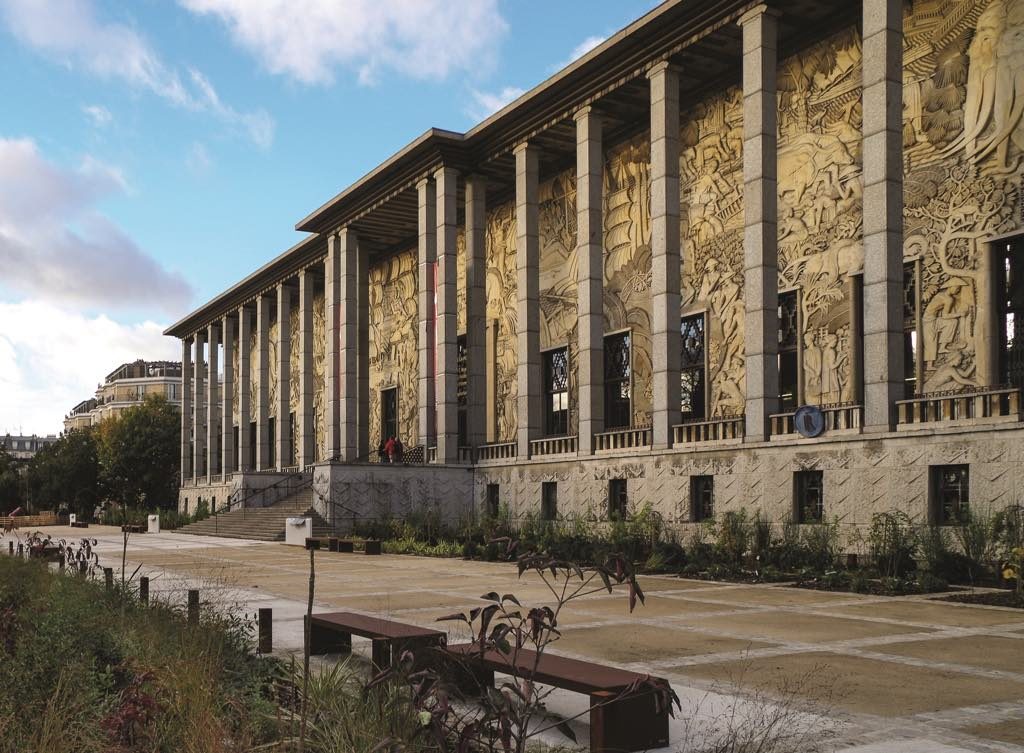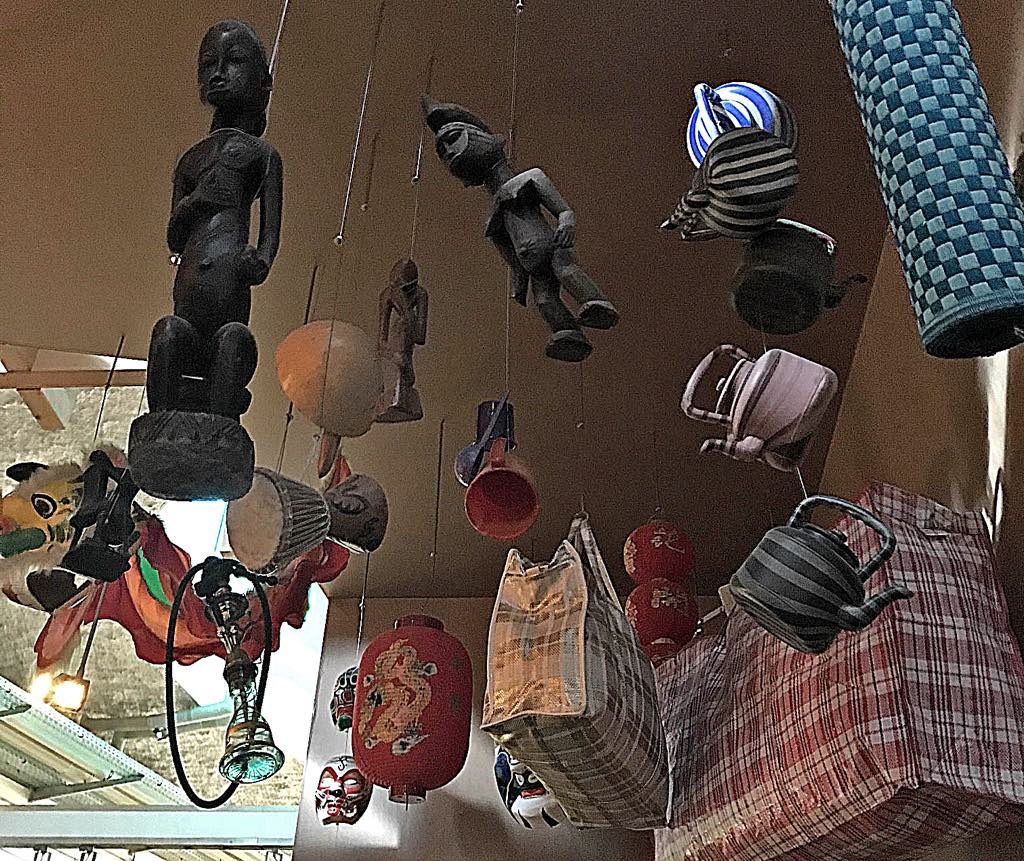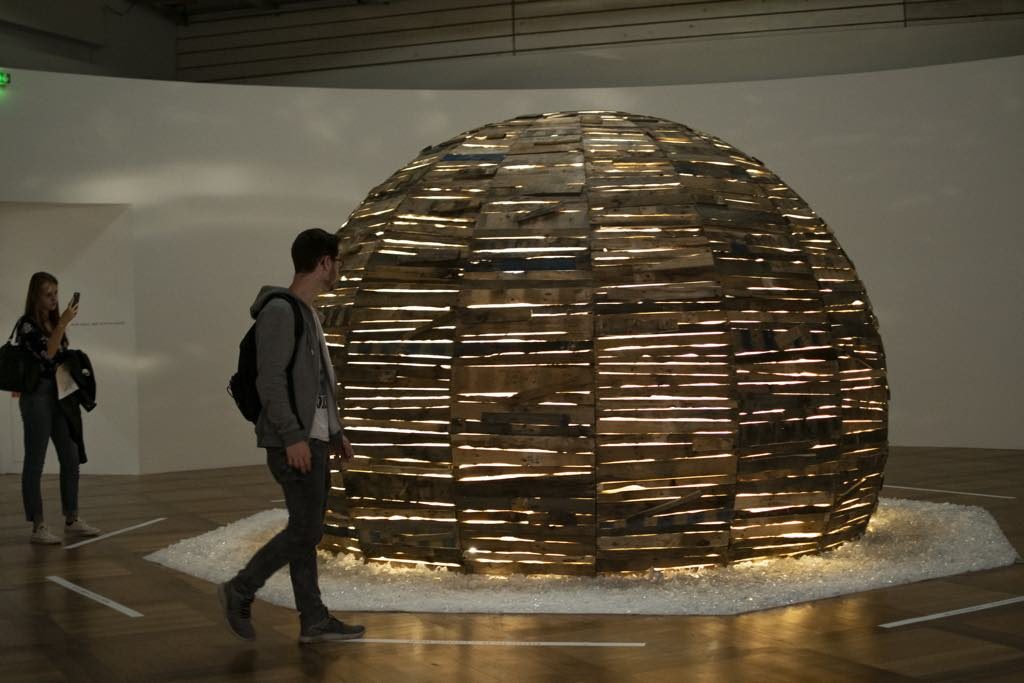
Far, far from home, in a fastness of the 12th arrondissement near the Bois de Vincennes, stands the Musée Nationale de l’Histoire de l’Immigration. An Art Deco jewel, a celebration of newcomers past and present, and a slap in the face to the tiresome xenophobes still among us, the museum more than merits an afternoon’s emigration from the huddled masses of visitors to central Paris.
First and foremost is the museum’s building. Constructed for the 1931 Paris Colonial Exhibition, the Palais de la Porte Dorée is an astounding Deco blunderbuss, the parade of bas-reliefs covering the entire facade a riot of politically incorrect optimism about France’s mission civilisatrice (aka “the white man’s burden”).
Time and history tempered that optimism – causing the building to house three ethnographic museums over the years – until 2007, when the reverse engineering was finally complete. People, not raw materials, are now hailed as riches to be welcomed into France. But the original decor – the friezes outside and the murals inside – still provide a breathtaking counterpoint to the museum’s current message.
The permanent exhibition recounts two-hundred years of immigration in well-presented displays evoking, among other things, the influx of Italians, Poles, Jews and, more recently, North Africans to France. In a wink to its construction date, the museum points out that in 1931, France was the world’s most popular immigrant destination, far outstripping North America and elsewhere.

Alternating with the usual glitzy audiovisual displays are clever mobiles hanging from the ceiling, their elements consisting of humble household items to be found in the homes and workplaces of toiling immigrant populations.
But not to worry – the rich are not ignored. The free-spending lushes of the Lost Generation are not forgotten, nor are the African-American Jazz Age successes, best exemplified by Josephine Baker.
Elsewhere, “Persona Grata,” a thought-provoking temporary exhibition that runs through January 20, 2019, showcases contemporary art and photography that deals, tangentially or directly, with the current crisis over the many migrants from the Middle East and Africa. It is, to put it mildly, a wake-up call about the virtues of hospitality. The exhibition has its own website and continues at MAC VAL (Musée d’Art Contemporain du Val-de-Marne) in Vitry-sur-Seine, near Paris (through February 24, 2019).
As a bonus to those of you who can read this article, the English translation of the arty French display prose is singularly impressive, as in: “Hospitality is liquid: one soul flows towards another, one body takes another that is at death’s door into its arms and attempts to restore its vital life force. Hospitality is, therefore, a small, uncertain step. It is born from the call of the sea, created by urgent distress.” Clearly, the curators did not grant an entry visa to Google Translate.
And, as a final bonus, visitors to the museum can make their way back to central Paris via the Coulée Verte (“Green Flow”), a mostly elevated walking trail that neighbors the Porte Dorée and leads all the way to the Bastille. The inspiration for New York’s High Line, the bucolic greenway is the ideal place to reflect upon the journeys just witnessed at the museum.
Favorite
